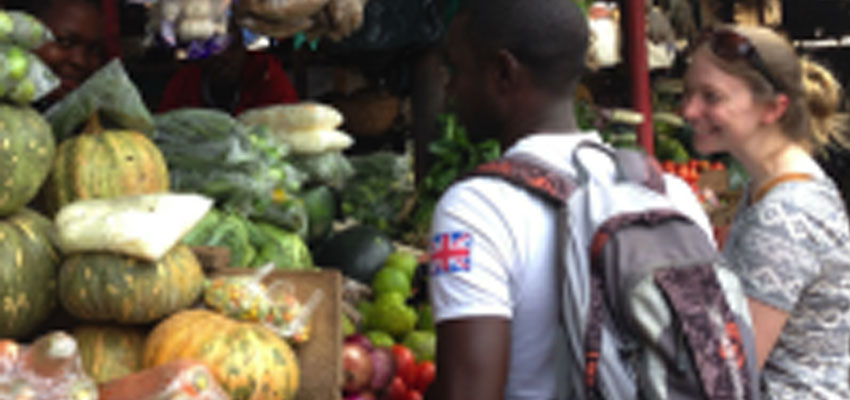
Lisa and Elizabeth are both graduate students at the Fletcher School of Law and Diplomacy, Tufts University.
This January, we traveled to Kampala, the capital city of Uganda, to work with the organic charcoal briquette company Green Bio Energy (GBE). We became involved with this project through MIT’s Sloan Entrepreneurs for International Development (SEID) program. We worked with two other student teammates, as well as with the Harvest Fuel Initiative and MIT’s D-Lab, to help GBE’s management further develop its marketing strategy for its charcoal briquette brand “Briketi.” Specifically, we sought to better understand how to reach the most impoverished, or base-of-pyramid (BOP), consumers in Uganda’s capital of Kampala.
Traditional wood charcoal, which is widely used as cooking fuel in Uganda, is depleting the country’s forests. Roughly 100kg of wood produces a mere 11kg of charcoal, and it is estimated that if current trends continue, Uganda’s forests will be gone by 2050 (National Environment Management Authority, 2008). Moreover, as trees become more scarce, prices for wood charcoal are rising steadily making the fuel increasingly unaffordable for the country’s poorer residents.
Charcoal briquettes such as Briketi differ from traditional charcoal in that manufacturers use more sustainable resources, such as carbonized banana peels and cornhusks, in producing a charcoal-like household fuel. The potential social and environmental impact of using charcoal briquettes is therefore great.
Briketi are also priced approximately 20% lower than traditional charcoal. Therefore, if the BOP households in Uganda switched their primary household fuel from wood charcoal to Briketi, they would benefit from the price differential as well as provide a massive boon for renewable energy in Uganda. GBE, however, has encountered difficulties in penetrating the BOP market.
And so, in early January 2014, we traveled to several different markets in Kampala to administer a marketing survey. Our survey focused on channels of communication used by BOP consumers, such as mobile phones, word of mouth, and radio. It also included measures of what consumers value in a product, such as affordability, quality, and environmental sustainability.
We spent much of our week on-site modifying the original survey, which we designed during the fall semester. In adapting our survey, we updated certain questions to make them more culturally appropriate. Most changes to our survey reflected an effort to make both the phrasing and content of the survey questions easier to understand. The majority of respondents felt significantly more comfortable speaking the local language, Luganda, rather than English. Therefore, we modified our wording to make the process easier for use with an interpreter.
We also added questions to ensure that the spirit of the most important questions was transmitted accurately. Unfortunately, this modification process meant that much of the information we collected during the first few days was no longer relevant. The on-the-ground testing and modification process, however, enabled us to make the survey more relevant to the BOP market segment in Kampala.
Overall, we were able to speak with roughly 60 individuals during our week of on-site work. Our teammate Mat Halpin, who traveled to Uganda shortly after us, recently completed an additional round of surveys. We look forward to analyzing the data gathered in Kampala to draw meaningful conclusions about the BOP market segment.
In addition to working with GBE and conducting surveys, we also had a chance to enjoy some of the natural beauty in Uganda. A few days into our trip, we visited the Ziwa Rhino Sanctuary, located a couple of hours outside of Kampala. The rhinoceros population in Uganda was wiped out entirely in the 1980s. The country is currently trying to re-establish a rhino population, and wildlife conservationists are centering their efforts on the Ziwa Rhino Sanctuary. After trekking through the bush for about half an hour, we had the great fortune of spotting three wild rhinos!
We are grateful for the opportunity to travel to Uganda on such a fascinating and worthwhile project, and we look forward to putting together a meaningful report for GBE.

